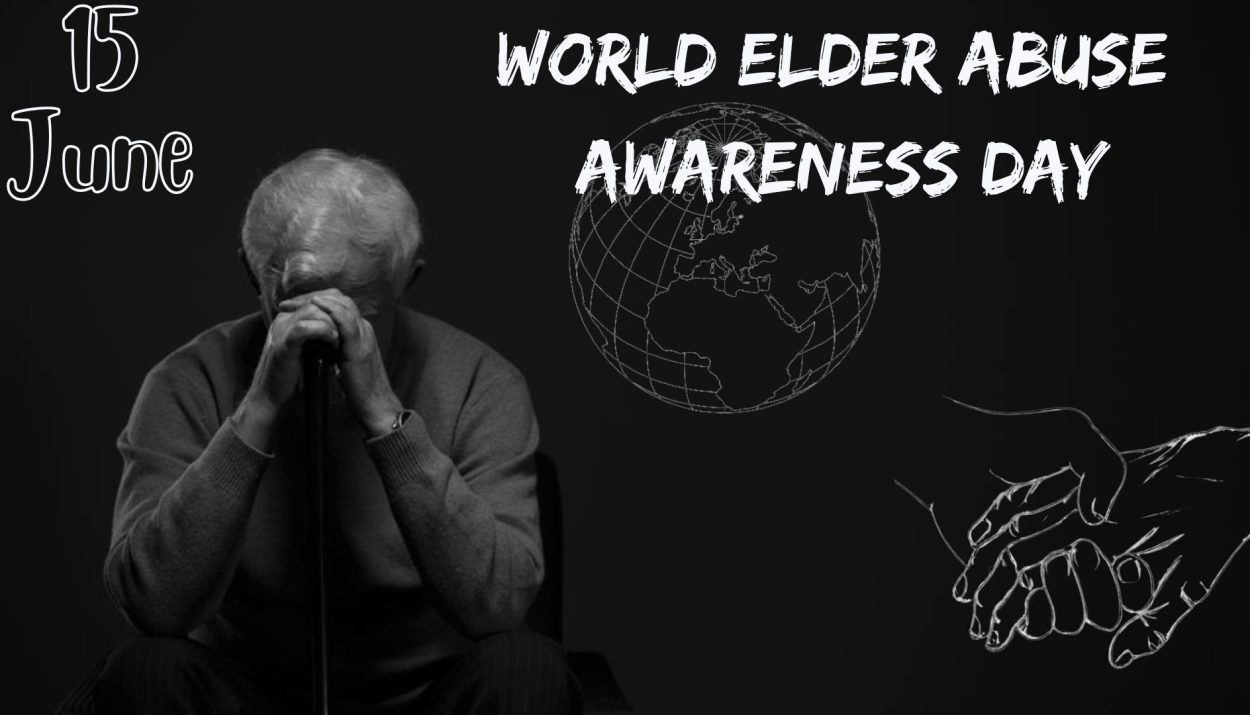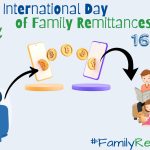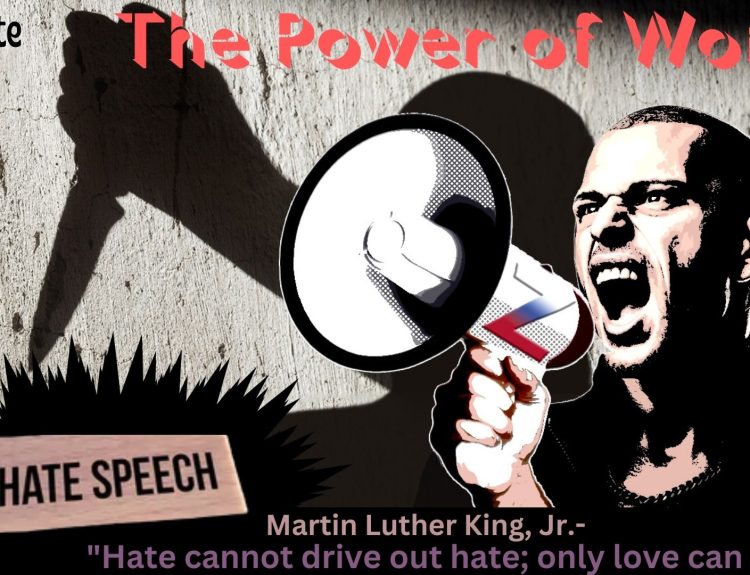World Elder Abuse Awareness Day (WEAAD) originated from a grassroots initiative in 2006 by the International Network for the Prevention of Elder Abuse (INPEA), a global organization dedicated to combating elder abuse and neglect. The INPEA recognized the urgent need to raise awareness about elder abuse and create a global movement to address this pressing issue.
The UN General Assembly officially recognized June 15th as World Elder Abuse Awareness Day in its resolution 66/127, adopted in December 2011. The resolution acknowledged the growing significance of elder abuse as a global public health and human rights concern and called upon member states, civil society organizations, and other stakeholders to observe and promote the day.
The theme this year is “Closing the Circle: Addressing Gender-Based Violence (GBV) in Older Age Policy, Law and Evidence-based Responses”.
Since its inception, WEAAD has gained momentum and international recognition. Each year, on June 15th, individuals, organizations, and communities around the world come together to mark the occasion. They organize various events and activities to raise awareness, promote elder empowerment, and advocate for the prevention and elimination of elder abuse.
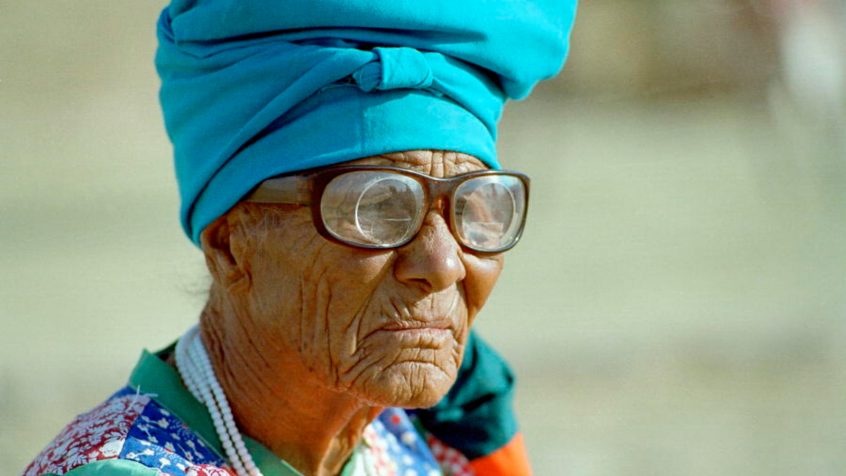
What is Elder Abuse?
Elder abuse pertains to any deliberate action or neglect that leads to harm or suffering for an older adult, typically aged 60 years or older. It encompasses various forms of mistreatment, harm, or neglect inflicted upon older individuals, often by someone in a position of trust or responsibility. Elder abuse can occur in different settings, including homes, care facilities, hospitals, and community settings.
Elder abuse exhibits connections to cultural contexts, manifesting differently across various societies. For instance, in certain traditional communities, older widows may face coerced marriages, whereas, in other cultures, isolated elderly women might be unjustly accused of practising witchcraft.
The different types of elder abuse include:
Physical abuse: The use of physical force that results in pain, injury, or impairment. This may encompass actions such as physical aggression, including hitting, pushing, restraining, or employing inappropriate physical restraints.
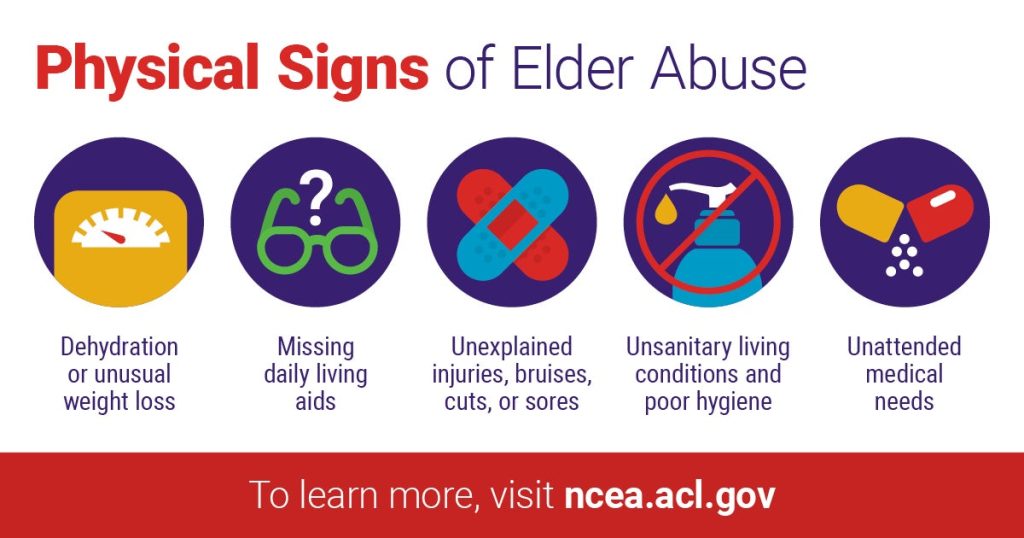
Emotional or psychological abuse: Involves causing mental anguish, emotional pain, or distress through verbal or non-verbal means. Examples include humiliation, threats, intimidation, insults, or isolating the older adult from social interactions.
Sexual abuse: Involves non-consensual sexual contact or exploitation of an older adult. This includes any sexual activity without the person’s consent or when the person cannot give support due to cognitive impairment or other factors.
Financial exploitation: Illegally or improperly using an older person’s funds, assets, or property without their knowledge or consent. This can include scams, fraud, theft, coercion, or undue influence to gain control over the person’s finances.
Neglect: Failing to fulfil caregiving obligations, resulting in harm or endangerment to the older adult. Neglect can include depriving the person of basic necessities such as food, water, medication, personal hygiene, or medical care.
Abandonment: Deserting an older adult dependent on others for care, leaving them without adequate support, supervision, or resources.
It’s important to note that elder abuse can occur in combination, with an older adult experiencing multiple forms of abuse simultaneously. Additionally, the abuser can be a family member, caregiver, partner, acquaintance, or even a stranger.
Promoting inclusivity and actively engaging with our senior citizens is a collective effort that drives social change. Our elders contribute immensely to our community, playing crucial roles in raising our grandchildren and offering valuable voluntary services (where one in five individuals participate). Above all, they hold intrinsic importance as an integral part of our identity and society.
Protecting Elder Abuse
The significance of every senior citizen in our community cannot be understated, which is why it is crucial to eliminate any form of mistreatment. As a society, we bear the responsibility for the well-being of every individual within our community, and among the most vulnerable are the elderly population.
Ageism is the root cause of elder abuse, stemming from the differential treatment individuals experience as they grow older, resulting in reduced visibility and exclusion from important conversations. It is incumbent upon all of us to ensure the safety of our senior citizens by maintaining regular contact and remaining attentive to their changing circumstances. When seniors no longer have access to necessary services and exhibit signs of withdrawal or others making decisions on their behalf, these can often indicate instances of abuse.
Individuals
- Educate yourself about the signs, risk factors, and consequences of elder abuse.
- Treat older adults with respect, empathy, and dignity.
- Stay connected with older family members, friends, and neighbours, providing social support and companionship.
- Report suspected cases of elder abuse to appropriate authorities or helplines.
- Be vigilant for potential signs of abuse, such as unexplained injuries, sudden behaviour changes, or financial exploitation.
- Encourage open conversations about elder abuse and promote awareness within your social circles.
Families and Caregivers
- Foster positive and respectful relationships with older family members.
- Provide safe and supportive environments for older adults.
- Be attentive to their physical, emotional, and financial needs.
- Seek support and respite care if caregiving becomes overwhelming.
- Advocate for older adults’ rights and well-being within the family.
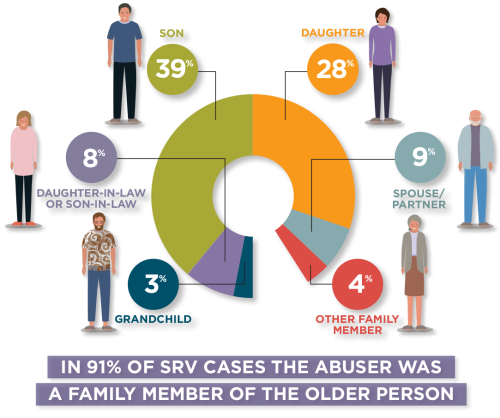
Communities
- Establish age-friendly communities that promote inclusivity and respect for older adults.
- Encourage intergenerational activities and connections to reduce social isolation and promote understanding.
- Support local initiatives and organizations that raise awareness about elder abuse.
- Develop community-based support networks to assist older adults at risk of abuse.
- Organize educational events and workshops on elder abuse prevention and recognition.
Healthcare Professionals
- Recognize the signs of elder abuse and include them in routine screenings.
- Provide healthcare services in a compassionate and respectful manner.
- Report suspected cases of abuse to appropriate authorities.
- Collaborate with social workers, law enforcement, and other professionals to support victims and prevent further abuse.
Government and Policy Makers
- Develop and enforce laws and policies that protect the rights and well-being of older adults.
- Allocate resources for elder abuse prevention, intervention, and support services.
- Promote mandatory reporting of suspected elder abuse by professionals working with older adults.
- Support research on elder abuse prevalence, risk factors, and effective prevention strategies.
- Collaborate with international organizations to develop global initiatives against elder abuse.
NGOs and Community Organizations
- Provide support services, such as helplines, counselling, and safe shelters, for elder abuse survivors.
- Raise public awareness through educational campaigns, workshops, and training sessions.
- Advocate for policy changes and increased funding for elder abuse prevention and support programs.
- Offer training and resources to professionals and caregivers to enhance their ability to detect and address elder abuse.
- By fulfilling their respective roles, each stakeholder can contribute to creating a society that values and protects the rights and well-being of older adults, ultimately working towards preventing and eradicating elder abuse.
Conclusion
The establishment of World Elder Abuse Awareness Day has brought much-needed attention to the issue of elder abuse, which was previously often overlooked or underestimated. It has played a crucial role in promoting a global conversation about the rights and well-being of older adults, leading to increased awareness, prevention efforts, and support services for victims.
Through ongoing efforts on WEAAD and beyond, the hope is to continue building a society that respects, values, and protects its older members, ensuring that they can age with dignity, safety, and the support they deserve.
In the event that you have concerns about the possibility of elder abuse, it is strongly encouraged to step forward and engage in communication with the consultants available at the ageing and disability abuse helpline. You are given the choice to maintain your anonymity or provide your name and details, but the essential message remains: conquer any apprehensions and give utmost importance to reporting the situation.
References
World Elder Abuse Awareness Day
World Elder Abuse Awareness Day
World Elder Abuse
Awareness Day!
World Elder Abuse Awareness Day- National Today


